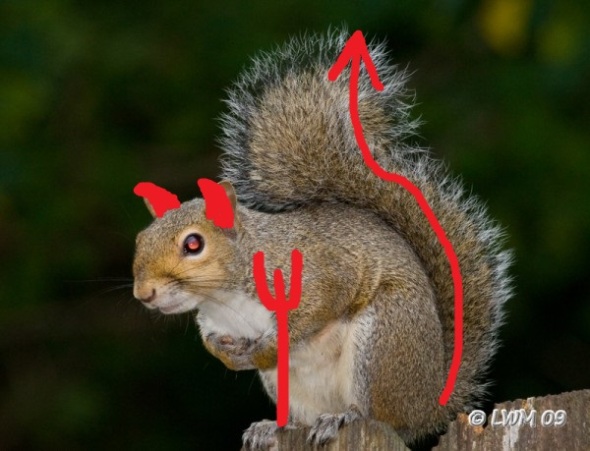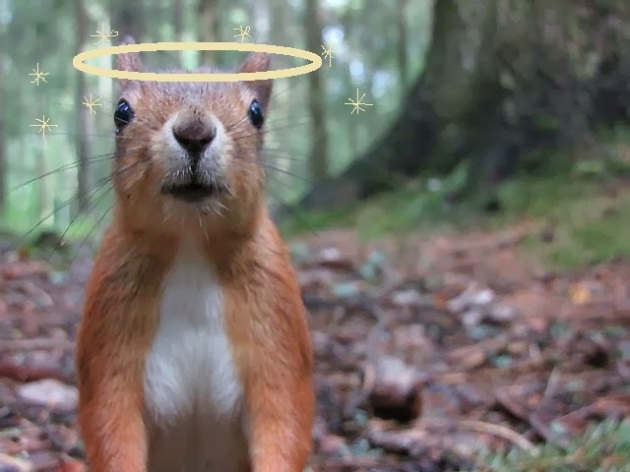The business plan essay component of this module was one met with great confusion by all of my peers – do we have to write our own business plan?! Thankfully not. The aim of this essay was to gain an understanding of what makes a good plan. By going through every aspect with a fine toothed comb in order to realise what needed to be included in that particular aspect, I was able to gain knowledge of what was expected if I were to ever be involved in the making of a business plan. This is something that I feel will benefit me greatly in my future career as having even a slight bit of knowledge about the world of business means that I will have a greater understanding of what is involved in the running of a successful one.
CV feedback blog
This may come as a surprise but I had never done a CV before this assignment. I didn’t even have the skeleton of one! So I personally found this particular task quite daunting. Now I have completed it however I feel like a weight has been lifted off of my shoulders – in theory all I have to do now is slightly edit it every so often, right?
For this assignment, as well as constructing a CV, we also had to find a job advertisement that we would love to apply for and write a cover letter to accompany it. People that know me well enough know that there was not really any other option for me other than to apply for some kind of job that entailed looking after livestock – particularly sheep. Farm manager at Chatsworth House it was then! Turns out this was not a fantastic choice as I was criticised for it being “perhaps a little out of reach”. Well, I will show you then!
In all seriousness, the importance of having an up to date, attractive and well written CV has been highlighted through this assignment. I have learnt how to construct one that will make the reader take notice, hopefully standing me in better stead of getting a job, which at the end of the day is the aim of the game!
Dragons Den Workshop – Overview
The dragons den workshop once again involved us getting into groups with people we didn’t know very well. Although some people may shy away from these opportunities, I find they are a great tool for finding out a persons true personality. Around your friends and family, you may be a totally different person than when you are around people you hardly know. You may be one of those people that can step up to a leadership role, if that is what is required. Or on the other hand you may be more comfortable letting other people take the head roles and you prefer to be given a task to do. Whichever type of person you are, I think it is important to be put into positions which may initially put you out of your comfort zone.
The workshop involved making a business plan to improve some sort of facility, my group chose to focus on Treborth and ways in which it can be improved and made into a local tourist hot spot. At the end of the day we were asked to make a video of our ideas, which would then be presented before we formally presented our plans to the rest of the class and some “dragons” who had come especially. All in all, it was a very successful day and I was able to learn a lot from both the other groups ideas and what the “dragons” expected from a formal business plan.
The War of the Squirrels. Search and Destroy?
The Evil Red – yes I did do this myself.
The Angelic Red – yep did this one too..!
Last Friday was the turn of Craig Shuttleworth, with his lovely deep accent and suitably muddy wellies, to grace us with a seminar on grey squirrel control, specifically around our beloved home of Bangor and Anglesey. Mr Shuttleworth (can I call him Craig?) brought us up to speed with the situation faced by our diminishing red squirrel populations. He gave us a refreshing insight into the issues facing grey squirrel culling and the reasons behind the need for a mass cull like the one currently being carried out – reasons which are not all pinpointed at the decline of the Red squirrel.
No, it extends much further than that. It turns out that the invasive Grey squirrels are in fact a pest, as much as any mice or rat that invade a home.It has become a commonplace problem of Greys to be found eating their way into the lofts of peoples homes. This is a serious issue due to the massive increased risk of fires that could result when the Greys, in their feat to gain access to our lofts, chew through the electrical wires and cables.
It is perhaps for this reason that 69% of the population of the United Kingdom say yes to a Grey squirrel cull – a massive proportion of these votes have even come from areas without any Red squirrels, which proves that the alien Grey squirrel has indeed become a widespread pest and simply just a nuisance to everyone. They aren’t from here, so why should they be allowed to push out one of our well-loved indigenous species?
And it is not only peoples homes that the Greys are having a negative impact upon, there has been research to suggest that the increase in the Grey squirrel population has a negative impact on native bird species – a fact that, surprisingly, the RSPB have done nothing about and still refuse to support the grey squirrel cull. Hmm… But anyway, that is a whole different blog topic, maybe for another day!
So, the main point that stuck with me as I walked back from Craig’s engaging and almost endearing seminar is this – KILL ALL GREYS!
But what to do with them then? Well, if you are open minded, and perhaps on a student food shopping budget, Jamie Oliver has some nice ideas about barbecued Grey squirrel fillets…
Careers Cafe
After finally finding the room (having never had a need to enter Rathbone before), my peers and I were greeted by a number of intimidating and professional looking faces – Cherry Shaklady, Nia Jones, Naomi Willis, Imogen German and none other than BBC presenter Dr Ross Piper. I had never heard of anyone other than having a brief recollection of Dr Piper and his obsession with insects, so was quite anxious about what the next hour or so would entail. As it turns out, the careers café was an enjoyable experience. Turns out they weren’t intimidating at all! Infact, they had all started out just like we have – as zoology students at Bangor University. After listening to them all individually talk about their experiences and what they had been doing since their time at Uni, one message was clear – grab every opportunity you are presented with and give it your absolute all. So that’s the plan! You never know… maybe one day it will be one of us sitting at that table, talking to a bunch of ignorant third years about our successes on television!
Chester Zoo – An exciting place full of attractions and entertainment? Or a research centre, committed to carrying out vital conservation efforts?
In a perfect world, no animal would have to live its life behind bars. No matter how much effort has gone into enrichment and making the enclosure as close to the “real thing” as possible, at the end of the day, the animal is still in captivity. It is being prevented from carrying out the behaviour that it was born to display.
But, as with most things, life isn’t perfect. In order to be able to keep enjoying these wonderful, inspiring creatures that roam our planet alongside us, we must conserve them. And as always, conservation comes at a staggering price. It is for this reason that zoos must continue to exist. People must keep visiting zoos. Children must keep learning about these beautiful animals that are currently on the brink of disappearing. And a zoo is a fantastic tool of education. The only thing better than being able to walk around a zoo and see exotic and foreign animals is being able to go and visit them in their natural habitat and unfortunately, the luxury of going off on an African safari is often only available to a few people who can afford it!
It is for this reason that we must allow zoos to be businesses. What attracts visitors? Shiny new attractions? Strange and beautiful animals? It is ironic that all these exotic animals that get the visitors attention are in fact not key stone species. Take the Giant panda for example – a disgustingly large amount of millions have been spent on getting two pandas to Edinburgh zoo. News that Tian Tian (the zoos female panda) was pregnant swept the nation like a wild fire and had tourists flocking to the zoo, but unfortunately, in the end, it was not to be. If you turn your attention to the website of Edinburgh Zoo you can watch “panda cam”(http://www.edinburghzoo.org.uk/webcams/panda-cam/) – providing a live feed from the enclosure to your computer! Fabulous! Isn’t it?
Tian Tian in Edinburgh Zoo – Its a hard life!
But actually it isn’t fabulous at all. If the panda was to go extinct, the effect wouldn’t be felt much further than the bamboo plants. Yet this is what people want to see – this is what attracts the visitors. Not a beetle. Even if it is quite possible that if this beetle were to go extinct, it would cause unrepairable ramifications across the ecosystem.
Chester zoo pride themselves on putting conservation first – and this is one of the main points that Dr Mark Pilgrim (Director of Chester Zoo) pushed when he came to present his seminar to a group of unforgiving and opinionated zoology students. Dr Pilgrim proudly told us all that the zoo set aside £1million every year for in-situ conservation. Which is great! But in order to carry on doing this, the zoo has got to carry on making money – it has got to ensure that for the long term, it is financially viable. With the intention to gain more and more money to put towards these conservation aims, the zoo puts a great deal of effort into visitor attractions and education. This is one aspect that I feel the zoo has achieved remarkably. But hey, don’t take my word for it – go and see for yourself, and be safe in the knowledge that the money you parted with will hopefully end up going into worthwhile conservation programmes.
Interview Skills Workshop
I have to admit, I woke up on the day of our interview workshop full of dread and a nervous sick feeling. Not knowing much of what was going to happen over the course of the day contributed to this horrible feeling, and the thought of being interviewed in front of everyone in my class made me want to run back home. But I didn’t! And to my (and I suspect a lot of other peoples) relief, we were greeted by the news that we would be split up into small groups in order to do the interviews. Phew! So we all took it in turns to be the interviewers and the interviewees, my group even stood up and shook hands when it was the next persons turn – anything to make it more realistic! All in all, it was a useful day. It was great to see how other people reacted under the pressure and I learnt some great tips on what to say and how to come across in order to make the best impression possible. One aspect I did not agree with however was the fact that it was pretty much totally peer marked. In my opinion, this gave the opportunity for some groups to be more lenient than others who were perhaps being too harsh, therefore making the grades non comparable between the groups. Although it would obviously have been hard to sit everyone down and assess them individually, I feel it may have been more beneficial to have an assessor with each group who also gave a more rounded and fair mark.
Location of first comments on other blogs
http://ktblakeley.wordpress.com/2013/10/25/mammalian-biology/#comments
“I can see by your blog that you were very interested and inspired by Phil Stephens’ opinion on the badger cull and I too thought he made some really good, well thought out points against the cull. I also agree that a widespread cull of badgers is a bad idea, which is perhaps surprising as my parents, grandparents and so on are all farmers. But it is because of the ‘Perturbation Effect’ that I do agree with both you and Phil Stephens, simply due to the fact that we have not had a TB reactor cow for as long as I can remember, so therefore I assume that the badgers around our farm are not carrying the disease. If a badger cull is carried out in our area, more badgers will move in and there is a risk that these will have TB – so why would we want a cull? Although I think that major risk areas such as parts of Somerset and Devon need some sort of solution, be it a local cull, vaccination or some sort of deterrent, but a widespread cull, in my opinion, is not the answer.”
http://biologystudent93.wordpress.com/2013/10/30/first-seminar/
“Firstly, I would like to say that I really enjoyed reading your blog – you seem to understand this whole blog thing much more than I do! I can tell by the way you write that you really have a passion for your subject, and this is projected through your enthusiasm all through your blog!
I wasn’t able to go to this seminar, but I do find the idea of this accelerated evolution in cichlids fascinating and I think there is so much we can learn from studying this that can be adapted to many other animals which would open up lots of other opportunities in the world of biology. Therefore the fact that it is getting easier to map genomes make research and data much more accessible which will perhaps progress the future of biology, which is very exciting indeed!”
Seminar on “Large Scale Questions in the Study of Mammalian Biology: Limitation and Opportunities”
Attending Phil Stephens’ seminar has maybe even so far as to say rekindled my love for the subject of conservation. Although, don’t get me wrong, it could have gone either way, considering the negative and almost bleak outlook on the future of conservation studies that he portrayed, but I think the fact that we have people like him, who are so profoundly passionate and active about conservation issues that are currently facing us, mean that we at least have a hope of making some kind of a difference. Or maybe it was the fact that he was drop dead gorgeous..!
According to Dr Stephens, it is the lack of long term studies currently being conducted that will be our short coming. Sure, it is easy enough to conduct field work that lasts let’s say a few months or even up to 4 or 5 years, but it is the “gold standard” long term studies that create the incredibly important ground work for these shorter studies to depend upon. But unfortunately, it is the shorter termed “sexy science” which will gain you the most notice, publicly and professionally. It is perhaps this very attitude that needs to change.
For example, in football, one player will make an immaculate pass into the box and all it takes is someone else (maybe a lot less skilled than them) to put the ball into the goal. My point is, the ball would never have made it into the box and anywhere near the goal without the first player, but it is always the player that actually put the ball into the goal that gets the recognition! Excuse that awful football analogy! It is the same in science – a short term “sexy” study that inspires and excites people may never have even come into existence without the longer studies creating the basis for them to work off.
The case study he used involved looking into the reproductive investment of the Alpine Chamois which involved using data collected from hunters over long periods of time. Although this is obviously not a perfect way of collecting data, it provides scientists with reliable information over long periods of time and, perhaps most importantly, it is a much cheaper way of gathering the important data needed and, unfortunately and undeniably, money really does make the world go round. Therefore, these alternative ways collating data, presents us with a good source of information when it is not possible to conduct a long term study of our own.
I think the main thing that I gained from Dr Stephens’ lecture was the realisation that there is a serious lack of new long term studies being planned and conducted, and without these, we as new upcoming conservationists will really struggle to further the efforts of the scientists before us. Perhaps it is up to us to re-evaluate the way these studies are carried out, and try to get the long term, gold standard experiments to live on and flourish.



